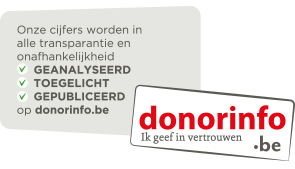Over the past week, tragic events and developments on European Migration and Asylum Seekers Policy have been happening over the European continent. Here’s what happened in Moria and Calais, and what you can do to help.
The Moria Fires
What happened?
On the 9th of September, multiple fires broke out and burned down Europe’s largest refugee camp, Moria, located on the Greek Island of Lesbos. The overcrowded facility, designed for fewer than 3.000, was evacuated, leaving 12.000 men, women and children without shelter or access to basic services.
A week prior the fire, tensions had arisen at the camp as the authorities placed the camp under quarantine, after a migrant contracted the corona virus. Some 35 cases were confirmed last week. As reported by Human Rights Watch, authorities have not provided sufficient access to medical care, hygiene products, running water, and testing.
According to the BBC, it is still unclear how the fires started. The Greek Migration Minister Notis Mitarachi reported that the incidents in Moria “began with the asylum seekers because of the quarantine imposed”. The Greek deputy mayor for civil protection has accused the residents of the camp for starting the fire and argues that the fires were “premediated” as he reported that “migrant tents has been empty” and arsonists had “taken advantage of the strong winds”. However, some migrants told BBC that the fire had broken out after rising tensions between migrants and Greek forces at the camp. Several residents of the camp have blamed the “far-right Greeks” as a reaction to the announcement of the corona virus cases.
What is the EU doing?
The EU has offered to help by “taking a major role in building and running a new site for migrants on the Greek island of Lesvos to replace the camp destroyed by the fire” reports Politico. Moreover, the European Commission has promised to fund the transfer of 400 lone children to the Greek mainland, and it is sending a ferry to shelter the most vulnerable people. However, nothing has been agreed upon so far. Germany has offered to take in 1500 migrants in addition to at least 100 unaccompanied minors. Belgium has agreed to take in 12 of the 400 unaccompanied minors from the camp. This number accounts for 0.1% of the total asylum seekers and migrants who were living in Moria.
Over the years, the Moria camp has become more than an overcrowded and unsafe camp, as it is now considered a symbol of the failure of EU Migration and Asylum Policy. Now more than ever, solidarity and responsibility are needed among EU member states.
What can you do?
Sign the petition on Change.org.
Calais
The city of Brussels has recently extended food distribution for migrants and asylum seekers at the Quai des Péniches until mid-October 2020. Serve the City is hoping that the Red Cross will soon be able to open a day centre where food distribution and other services will be available for migrants and asylum seekers. While this is a positive and hopeful news, not the same can be said about the new decision taken by Gerard Darmanin, French Minister of the Interior, in Calais earlier this week.
Since the dismantlement of the “Calais Jungle” in 2016 where more than 9000 people lived, migrants are now scattered across several camps on the outskirt of Calais. There are estimated to be around 1200. Refugee Youth Service estimates that there are around 100 unaccompanied minors among the 1200 migrants in Calais.
NGOs have reported extremely bad living conditions and sanitary emergency, due to lack of water, piles of garbage and rats. However, the French prefecture maintains that is has reinforced access water access since the COVID-19 crisis.
Despite such alarming conditions, Gerard Darmanin has decided to ban food distribution from NGOs non mandated by the French government until the end of September. He justified this decision by arguing that food distribution “violated the social distance measures imposed by the government due to the corona virus pandemic” as well as creates public littering. Local NGOs active in Calais have qualified this new policy as a “humanitarian mistake” which will be extremely harmful to the migrants. Moreover, they argue that this new decision will create bigger queues during food distribution of mandated NGOs, which will very likely worsen the situation that Darmanin wants to avoid, making social distancing measures more difficult to apply.
This decision taken by the French Government is a reminder of how the COVID-19 crisis has been extremely harmful and has worsen the living conditions of migrants, asylum seekers and other vulnerable people, who are dependent on daily food distribution from charity organisations and NGOs.
Sources:
Moria
- https://www.bbc.com/news/world-europe-54082201
- https://www.hrw.org/news/2020/09/12/greeces-moria-camp-fire-whats-next
- https://www.brusselstimes.com/belgium/131376/limited-capacity-belgium-will-take-in-12-of-400-minors-from-moria-refugee-camp/
- https://www.theguardian.com/world/2020/sep/10/eu-official-says-asylum-policy-impasse-part-of-the-problem-at-moria
Calais







